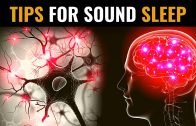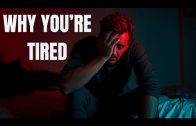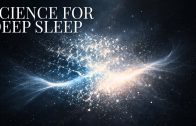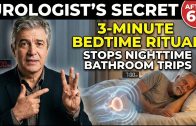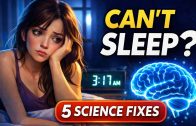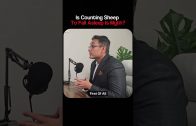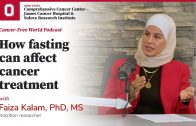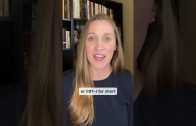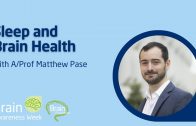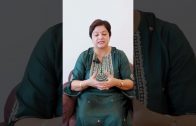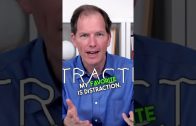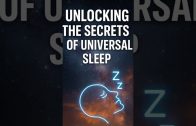How to #Sleep Better, Faster, & Longer: Top 15 #Scientific Tips for Successfully Defeating #Insomnia
Tip no. 1: Daily aerobic exercise [2]. A clinical study conducted by researchers from Northwestern University clearly shows that aerobic exercise can improve sleep even in patients suffering from chronic insomnia. Although you could exercise in the evening, just make sure you don’t do it right before going to bed.
Tip no. 2: Cognitive behavioral therapy [3]. Nearly 60% of the patients suffering from acute insomnia experienced psychological relief and began sleeping well within a month’s time after participating in a single hour-long session on behavioral therapy. Within a period of 3 months, this number increased to 73%. Please contact a qualified mental health professional to learn more about behavioral therapy. It involves techniques that reinforce desirable or good behaviors and eliminate bad behaviors. Happy people always sleep well.
Tip no. 3: In order to sleep well, you must have a well-defined purpose in life [4]. But what if you are doing almost nothing at the moment? Well, then you must think fast, act fast, and cultivate a legitimate purpose. For example, if you feel passionate about a positive activity, then go for it during the daytime to ensure a good night’s sleep.
Tip no. 4: Make sure you develop healthy relationships that make you feel secure in order to sleep well [5]. People who feel lonely also find it difficult to sleep well according to researchers from the University of Chicago.
Tip no. 5: A pediatric study showed a good association between sound sleep and the intake of omega-3 DHA [6]. By the way, we all know that the consumption of omega-3 DHA is also associated with other known health benefits. So why not give it a shot?
Tip no. 6: A meta-analysis and systematic review of over 5,000 research studies showed that taking a warm bath 90 minutes before going to bed can help you fall asleep faster. [7]
Tip no. 7: If you are obese or overweight, then losing weight by eating a high-protein diet can also help you sleep well, according to Purdue University researchers [8].
Tip no. 8: Japanese researchers have previously pointed out that milk induces sleep [9]. Milk contains a high amount of tryptophan. Our body converts tryptophan into melatonin and melatonin suppresses the activity of GABAergic neurons in the lateral hypothalamus. These neurons are responsible for wakefulness and that’s why drinking milk makes you fall asleep. Just make sure you don’t drink it right before going to bed. You could have it with your evening dinner.
Tip no. 9: According to a published research study [10], sleeping and waking up consistently at the same time on all days, including weekends, is critical for ensuring consistent sleep.
Tip no. 10: Meta-analysis performed by South Korean researchers shows a statistically significant association between aromatherapy-based massage and sound sleep. Similarly, having fun with yourself or with your partner, in bed, can also induce sleep [11, 19].
Tip no. 11: Sometimes, an underlying medical condition can trigger insomnia. So make sure you get yourself tested to rule out this possibility [12].
Tip no. 12: Pumpkin seeds contain plenty of magnesium and research shows that magnesium is effective in inducing sound sleep [13].
Tip no. 13: By the way, e-cigarettes, alcohol, and tobacco are all able to massively destroy sleep [14, 15, 16]. Therefore, one must always stay away from them.
Tip no. 14: Research conducted on college students shows that avoiding naps can help you sleep better [17].
Tip no. 15: Lastly, laughing in the evening can also prime you for sound sleep, according to a report published by geriatric researchers from South Korea [18].
#science #sleepwell #goodnight #sleeping #mentalhealth #joy #brain #neurons #sleepingbed #mattress #health
Research publications:
[1] https://www.nature.com/articles/ng.3888
[2] https://www.sciencedirect.com/science/article/abs/pii/S1389945710002868?via%3Dihub
[3] https://academic.oup.com/sleep/article/38/6/971/2417012
[4] https://sleep.biomedcentral.com/articles/10.1186/s41606-017-0015-6
[5] https://academic.oup.com/sleep/article/34/11/1519/2454670
[6] https://onlinelibrary.wiley.com/doi/10.1111/jsr.12135
[7] https://linkinghub.elsevier.com/retrieve/pii/S1087079218301552
[8] https://academic.oup.com/ajcn/article/103/3/766/4569582
[9] https://www.ncbi.nlm.nih.gov/pmc/articles/PMC7766425/
[10] https://www.ncbi.nlm.nih.gov/pmc/articles/PMC7551301/
[11] https://pubmed.ncbi.nlm.nih.gov/34166869/
[12] https://www.ncbi.nlm.nih.gov/pmc/articles/PMC6622513/
[13] https://www.ncbi.nlm.nih.gov/pmc/articles/PMC3703169/
[14] https://www.sciencedirect.com/science/article/abs/pii/S0306460320307760?via%3Dihub
[15] https://www.nature.com/articles/s41598-020-62227-0
[16] https://pubmed.ncbi.nlm.nih.gov/8078854/
[17] https://pubmed.ncbi.nlm.nih.gov/25397662/
[18] https://synapse.koreamed.org/articles/1096448
[19] https://www.ncbi.nlm.nih.gov/pmc/articles/PMC6409294/
